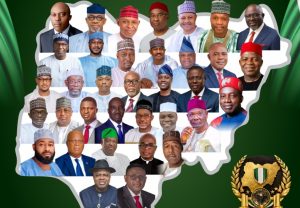Sultan of Sokoto Warns Clerics: Reckless Social Media Posts Threaten National Unity.
The Sultan of Sokoto, His Eminence Alhaji Sa’ad Abubakar III, has issued a warning about the dangers of unregulated social media use among Islamic scholars, stating that it poses a significant risk to national harmony and cohesion.
The influential monarch delivered his message on Thursday at the Northern Ulama Summit held in Kaduna. The Sultan’s address was read on his behalf by the Emir of Zazzau, Ambassador Ahmed Nuhu Bamalli, before an assembly of prominent Islamic clerics, including Sheikh Ahmad Gumi and former Governor of Zamfara State, Abdulaziz Yari.
The summit, which focused on the intertwined issues of pervasive insecurity and deep-rooted socioeconomic challenges in northern Nigeria, served as a platform for the Sultan to renew his longstanding call for a more responsible digital ecosystem.

While the details of the speech were not fully published, sources familiar with the summit’s discussions confirmed that the Sultan advocated for the enforcement of existing laws against online defamation and incitement. The emphasis, however, was said to be on legal accountability for harmful speech rather than on imposing full-scale internet censorship.
This renewed push from one of Nigeria’s most prominent religious and traditional leaders places a spotlight on the government’s ongoing efforts to regulate online spaces. It aligns with existing legal frameworks like the Cybercrimes Act of 2015 and more recent content moderation rules proposed by regulatory bodies.
The context for this warning is a region, and a nation, grappling with complex security crises—from rampant banditry and kidnappings to communal clashes. In this volatile atmosphere, the Sultan and other leaders appear to be concerned that inflammatory or unverified information spread online by influential figures can exacerbate tensions and undermine efforts towards peace.
The Northern Ulama Summit itself was convened as a direct response to these challenges, seeking solutions from within the religious community. The presence of figures like Sheikh Gumi, who has been involved in mediation efforts with bandits, show the critical role clerics are playing in the region’s security architecture.
The call signals a growing consensus among traditional institutions that the digital realm can no longer be a law-free space, especially for those with the power to influence millions.
Discover more from TOKTOK9JA MEDIA
Subscribe to get the latest posts sent to your email.



























